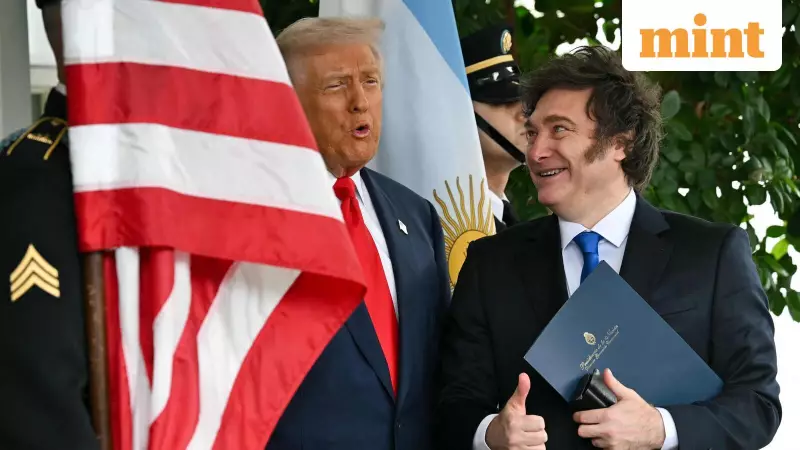
The Trump administration finds itself entangled in two significant international economic crises that experts argue were largely self-inflicted. According to prominent economist Barry Eichengreen, these strategic blunders are systematically eroding America's global influence rather than enhancing it.
Argentina's Precarious Currency Gamble
In South America, the United States has committed over $20 billion to support Argentine President Javier Milei's controversial economic strategy. While Milei has successfully implemented drastic budget cuts as promised, his approach to stabilizing the Argentine peso has raised serious concerns among economic observers.
The administration's unconditional financial backing of Argentina's exchange-rate-based stabilization plan exposes American taxpayers to significant risk. Historical patterns suggest such currency stabilization attempts in Argentina have consistently failed, often culminating in political turmoil and economic collapse.
Eichengreen emphasizes that Argentina represents a "graveyard of unsuccessful exchange-rate-based stabilizations", referencing analysis from his Berkeley colleague Maurice Obstfeld. The current strategy has already produced negative consequences, including hampered exports, slowed economic growth, and alarmingly high unemployment rates.
The China Trade War Miscalculation
Meanwhile, the administration's trade confrontation with China has unfolded in a manner that appears to favor Beijing rather than Washington. Contrary to Trump's assumptions about American leverage, China has demonstrated multiple avenues to counter US economic pressure.
China has effectively redirected exports away from American markets to other global destinations, a strategy it began implementing even before Trump's return to the White House. More significantly, Beijing holds a powerful trump card: control over rare earth exports that are essential for consumer electronics, automobiles, and US military equipment.
The recent negotiation between Trump and Chinese President Xi Jinping resulted in what experts characterize as an American retreat. Xi offered vague commitments to purchase more American soybeans while maintaining the threat of rare earth embargoes. In return, Trump agreed to scale back punitive tariffs, suspend port fees on Chinese vessels, and delay expanding the Entity List of restricted Chinese companies.
Long-Term Consequences and Recommendations
This pattern of negotiation establishes a dangerous precedent for future US-China relations. Each time the US threatens economic measures, China can respond with the rare earth embargo threat, potentially forcing American concessions repeatedly.
Regarding Argentina, Eichengreen recommends the Trump administration should condition continued support on currency reforms. Specifically, he suggests requiring the Milei government to allow peso depreciation to eliminate overvaluation, followed by a more flexible exchange rate system. This approach would boost Argentine exports, stabilize employment, and improve debt repayment capacity.
While inflation reduction might proceed more gradually under this alternative approach, the economic adjustment would prove more politically sustainable with less social disruption. However, neither Milei nor Treasury Secretary Scott Bessent shows indication of adopting this more prudent path.
The fundamental lesson, according to Eichengreen, is that the United States should avoid creating such international economic predicaments in the first place. With both crises demonstrating diminished American leverage, the administration's foreign economic policy appears to be weakening the country's global standing at a critical geopolitical moment.






